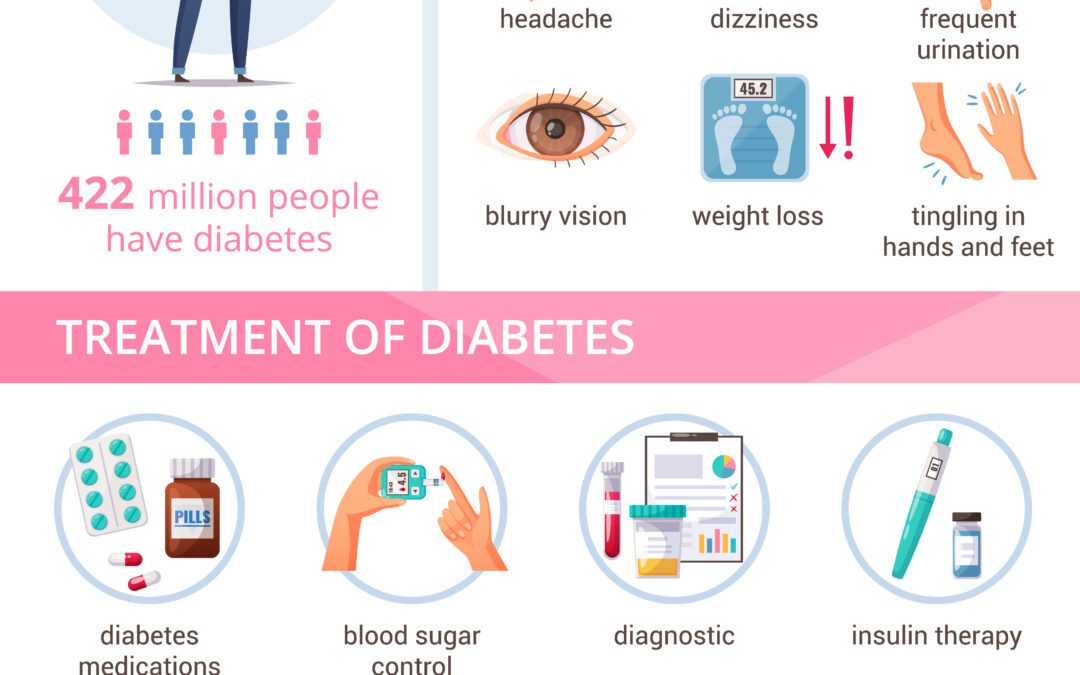Preventing Diabetes: A Comprehensive Guideline
Preventing diabetes, especially Type 2 diabetes, involves adopting a proactive approach focused on healthy lifestyle changes and regular monitoring.
Here are some comprehensive steps to help you reduce your risk of developing diabetes.
Maintain a Healthy Weight and Engage in Regular Physical Activity
Achieve and Maintain a Healthy Weight:
Aim for a body mass index (BMI) in the normal range of 18.5 to 24.9. Losing even a modest amount of weight (5-7% of your body weight) can significantly reduce the risk of diabetes.
Balanced Diet:
Focus on a diet rich in fruits, vegetables, whole grains, lean proteins, and healthy fats. Avoid excessive intake of processed foods, sugars, and trans fats.
Portion Control:
Be mindful of portion sizes to prevent overeating. Use smaller plates and bowls to help manage portions.
Engage in Regular Physical Activity
Exercise Regularly:
Aim for at least 150 minutes of moderate aerobic activity or 75 minutes of vigorous activity per week, such as brisk walking, cycling, or swimming.
Strength Training:
Include strength training exercises at least two days a week to improve muscle mass and metabolism.
Stay Active Throughout the Day:
Incorporate physical activity into your daily routine, such as taking the stairs, walking during breaks, or playing with your children.
Healthy Eating Habits and Monitor Your Health
Whole Foods Focus:
Consume whole, minimally processed foods that are high in fiber, such as fruits, vegetables, legumes, and whole grains.
Healthy Fats:
Include healthy fats from sources like nuts, seeds, avocados, and olive oil.
Limit Sugary Beverages:
Avoid sugary drinks such as sodas, energy drinks, and sweetened coffees. Opt for water, herbal teas, or drinks with no added sugars.
Carb Quality:
Choose complex carbohydrates like whole grains over simple carbs found in sugary snacks and white bread.
Monitor Your Health:
Regular Check-ups:
Schedule regular check-ups with your healthcare provider to monitor blood sugar levels and overall health.
Know Your Risks:
Understand your risk factors, including family history, age, ethnicity, and other health conditions.
Blood Pressure and Cholesterol:
Keep your blood pressure and cholesterol levels within the recommended ranges.
Lifestyle Changes and Educate Yourself
Quit Smoking:
If you smoke, seek help to quit. Smoking increases the risk of diabetes and many other health issues.
Limit Alcohol Consumption:
Drink alcohol in moderation, if at all. For women, this means up to one drink per day, and for men, up to two drinks per day.
Stress Management:
Practice stress-relieving activities such as yoga, meditation, or deep breathing exercises to avoid the negative impacts of chronic stress on your health.
Educate Yourself:
Stay Informed:
Learn about diabetes and its risk factors. Awareness can empower you to make healthier choices.
Support Systems:
Engage with support groups or wellness programs that offer education and guidance on diabetes prevention.
By adopting these comprehensive lifestyle changes and staying proactive about your health, you can substantially lower your risk of developing diabetes.
Each step you take towards improving your health is a step towards a diabetes-free future.
